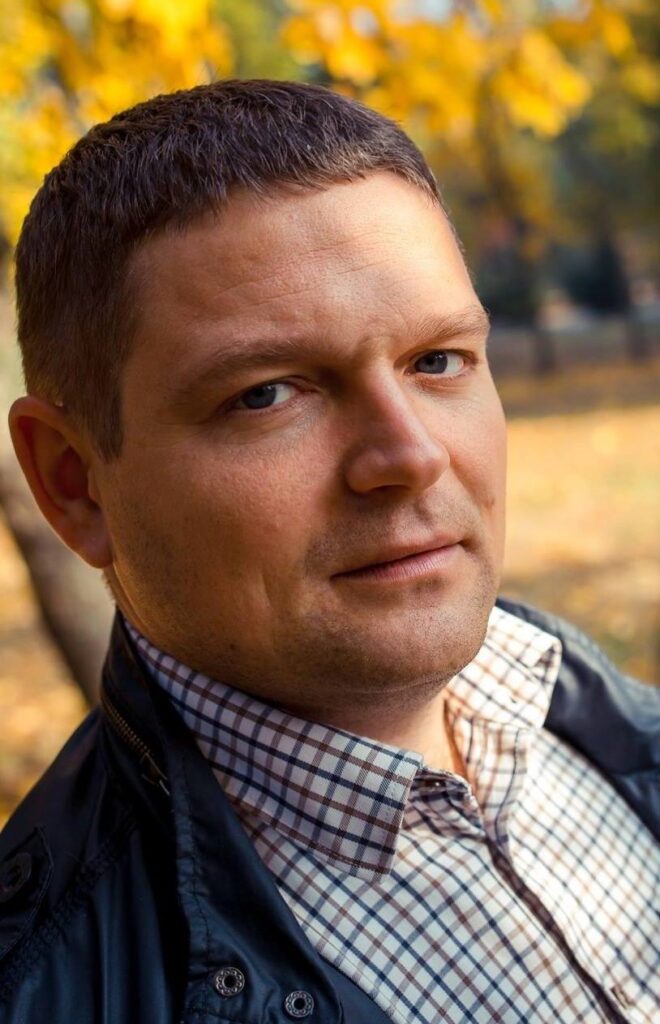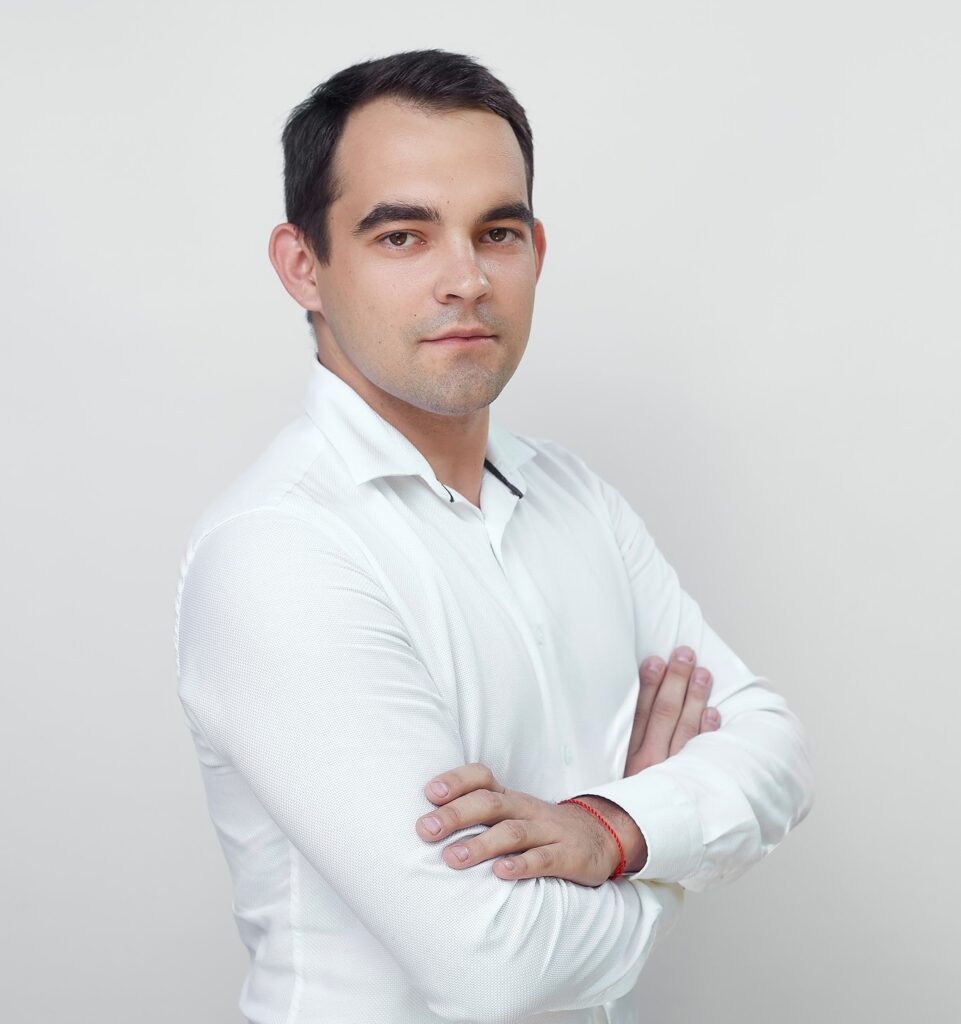Finding One’s Place in the Sun: Life Challenges of Relocated Communities — Summary of the Closed Discussion
Publication date: December 27, 2024
Author: Yuliia Bilyk, Communications Manager, Legal Development Network
While Ukrainians resist the external enemy — the Russian Federation and the attempt to destroy the nation — residents of communities relocated from temporarily occupied territories are forced to simultaneously face internal challenges. These include state policy, which has an uncertain vision for the future of relocated communities, and the passage of time, which deepens this uncertainty and raises questions about whether these communities can be preserved in the future. The life of displaced communities, along with the problems and challenges it entails, was the focus of a closed online discussion held on November 7. The event was organized by the Legal Development Network and the STEP NGO as part of the initiative to support relocated communities.
The discussion featured representatives from several communities in the Zaporizhzhia Region, whose administration and residents relocated to Zaporizhzhia City following the occupation of their territories in March of 2022. The chosen closed format of the discussion allowed participants to feel safe among like-minded individuals. As a result of the candid conversation, we identified the most pressing pain points for the communities, with the aim of transforming them into growth areas through subsequent steps of the joint initiative.
Registration for IDPs and Refugees
People create communities, not names and administrations. Therefore, the first and foremost challenge faced by communities is related to their key resource — people. While many community residents have settled in Zaporizhzhia, many others have found their place in other regions of Ukraine or abroad. However, there are cases where citizens turn to community administrations for advice on relocating closer to their home regions. A critical issue is the lack of full and verified information about the whereabouts of all community members. The statistics they rely on are mostly based on data from internally displaced persons (IDPs) who sought humanitarian aid from the communities. Consequently, this data is rather approximate.
Communities strive to stay connected with their residents in order to return to their land together after de-occupation, whenever that may happen. However, this cannot be achieved without assistance from central government bodies. Relevant ministries and their structural divisions could serve as sources of verified data on the current whereabouts of community residents.
Preserving Identity
Immediately after relocating, communities set up humanitarian hubs where citizens received food and hygiene packages, as well as psychological support.

“At the beginning, we collectively addressed basic humanitarian needs. Now, people have started looking for other activities, realizing that, unfortunately, they will not be returning to their territories in the near future. And we are also working with them to find areas where we can be involved and where we can help,” says Oleksiy Ahentaiiev, the Chairman of the STEP NGO Board.

“The communities need to preserve their identity, find new meanings for their existence, and establish a new organization for both their governance bodies and the community in general,” notes Anton Stasik, the Lawyer at the STEP NGO.
Reduction of Humanitarian Aid
In the third year of relocation, material support for internally displaced persons has significantly decreased.
“At one of the meetings, there was a discussion about a significant reduction or even the complete cessation of humanitarian aid for IDPs. It was suggested that internally displaced persons in Zaporizhzhia have been there for two years and should have integrated into the Zaporizhzhia community by now, feeling like part of it,” recalls Lina Serhiieva, Head of the Department of Labor and Social Protection of the Enerhodar City Council.
This point is echoed by colleagues, who sometimes encounter biased attitudes from international humanitarian organizations.
“Perhaps some community leaders have stronger ties with certain organizations, so their citizens receive assistance. These may be people who, for example, live in Zaporizhzhia but don’t come from an occupied community. They receive aid, while our people, who are struggling, don’t,” stresses the head of one of the relocated communities.
Furthermore, in order to receive humanitarian aid, IDPs must belong to vulnerable categories: persons with disabilities, families in difficult life situations, and so forth. A typical family with a baby or several children of different ages usually does not meet the criteria of these organizations.
“I believe that a great deal of attention should be paid to these families with children. As a rule, parents cannot work due to the inability to place their children in kindergartens and schools, and there are no grandparents nearby to help. Their income is very low, rent in Zaporizhzhia is high, and it keeps increasing, as do utility bills,” adds Lina Serhiieva.
The head of one of the relocated communities urged colleagues to unite and voice their position in support of IDPs from occupied territories, who have often lost their homes and belongings. It is essential to bring this issue to a wider audience, at least at the level of regional military administrations. At the same time, it is important to convey to humanitarian organizations that they must be more flexible and apply an individual approach to the distribution of aid. For example, an elderly person may receive food packages from multiple organizations, while a young family in a difficult financial situation may be left without any support.
Struggle for Education
In the early years of occupation, relocated communities operated in Zaporizhzhia almost as if they were at home: administrations, hospitals, and educational institutions continued to function. Over time, due to a significant reduction in funding, many communities lost their medical services. By 2024, there were signs that the same fate could befall the educational sector.
For instance, the head of one community takes pride in the fact that out of 196 teachers who worked in the community schools, 169 relocated and continued working in Zaporizhzhia. However, as the number of students in schools decreases due to natural causes and circumstances caused by the war, such as parents deciding to transfer their children to Zaporizhzhia institutions offering in-person or hybrid learning instead of the remote learning offered by schools in relocated communities, there is increasing talk of staff reductions, shortened working hours, and salary cuts.
“We lost medicine. We don’t want to lose education. How can I, for example, tell my teachers, ‘Sorry, thank you for coming, showing your patriotic stance, but now the state wants to reduce our schools and leave you without work’? This is a battle we won this year, but I know that next year it will be a very big issue,” stresses the head of one of the communities. According to him, motivating and retaining teachers is one of the main tasks. “Without these people, we can’t do anything. Who will we return with?!”
Out of 15 institutions that provided educational services in another community, now only four fully function remotely.
“The Association of United Communities conducted a survey, and our region’s communities participated. I’m sure useful initiatives were developed to preserve the schools of relocated communities. However, in the current legal framework, one contradicts the other,” notes Vitalii Manych, the Head of the Chernihiv Community in Zaporizhzhia Region.
Preservation of Funding and Attracting External Resources
Community leaders express concern that they may need to re-register in the city of residence, and discussions are ongoing about this in Zaporizhzhia.
“Maybe this isn’t an issue in other regions, but recently, there has been a constant worrying signal: we might be forced to re-register in Zaporizhzhia. This would completely undermine our ability to generate income, as re-registration would lead to the allocation of funds paid by our relocated institutions and businesses into the local budget,” explains Vitalii Manych.
Community leaders ensure that the budgets of relocated communities are mainly directed toward salaries for teachers, medical staff, and local government officials. Additionally, communities are finding ways to direct significant resources to support the Armed Forces of Ukraine. For example, one community head mentioned a sum of 60 million UAH.
Communities are confident in the transparency of budget spending. Moreover, they are always ready for monitoring to prove their efficiency and show that they could do much more with larger budgets.
Barriers to attracting external resources include a lack of qualified personnel to prepare grant applications and implement projects. An even more significant barrier is that international organizations do not perceive relocated communities as serious partners. They argue that without a territory, there is no community.
Intermunicipal Cooperation
Some displaced communities have managed to build reliable partnerships with other communities and cities in Ukraine over the years of displacement. As a result, for example, communities receive additional humanitarian aid for their residents and organize vacations for children in safer regions.
The basis for such cooperation is memorandums. These documents provide a narrower range of opportunities for interaction than would be possible with inter-municipal cooperation agreements. However, according to the current legal framework, agreements cannot be signed at the level of communities from occupied territories.
Finding One’s Place
Relocated communities’ schools do not have their own educational premises. Therefore, Zaporizhzhia schools offer to organize lessons in their classrooms only in the afternoon, as local students study in the morning. According to community heads, this is a result of prejudiced attitudes toward residents of displaced communities.
Relocated communities in Zaporizhzhia seek greater understanding from the regional and municipal authorities.
“There is an issue of misunderstanding in the city where most of us are now located regarding the fact that we can support communal property at our own expense. The city can provide us with unused premises; we will use them, invest in them, pay for utilities, operational costs, etc. And then, when we return, the improved premises will remain,” shares Lina Serhiieva.
Another community leader shares an idea of gathering their entire community, finding a city or settlement in Ukraine willing to accept their residents, and stating: “I will bring you six thousand people, 2,500 families ready to work.”
The challenges mentioned above are just a small part of the daily issues faced by relocated communities. However, their representatives remain optimistic: “We are united by the desire to win, we are united by the desire to live, so that our people, our children also have a place, however small, under the sun on our land,” stresses the head of one of the relocated communities.
Related material:
P. S. In June 2024, the Legal Development Network (LDN) launched a crowdfunding campaign, Recovery of The South of Ukraine , as part of the crisis response program #StandWithUkraine.
You can Recovery of The South of Ukraine |
If you have notices an error on the web-site, please, highlight the text and press ctrl-enter.
Have you found your solution? Help others!
Print a poster
Print and place the Network's poster on a notice board in your entrance hall
Become a volunteer
Become a volunteer and assist others in finding problem solutions
Do you need a consultation ?
Online chat
Ask question and one of the LDN's lawyers
will answer it.
Chat's schedule: from 10 to 16
every day
Chatbot
Ask questions via LawLink Bot in any convenient way. LawLink Bot is a smart and digital legal assistant created by the Legal Development Network.

Our initiatives
The Legal Development Network implements comprehensive projects aimed at strengthening human rights, developing capable communities, and building sustainable tools for access to legal aid. We work at the intersection of advocacy, legal education, and local coordination of humanitarian response.
